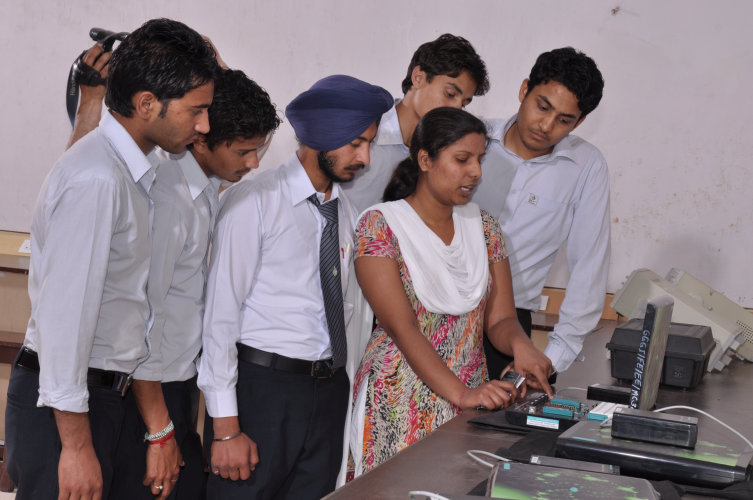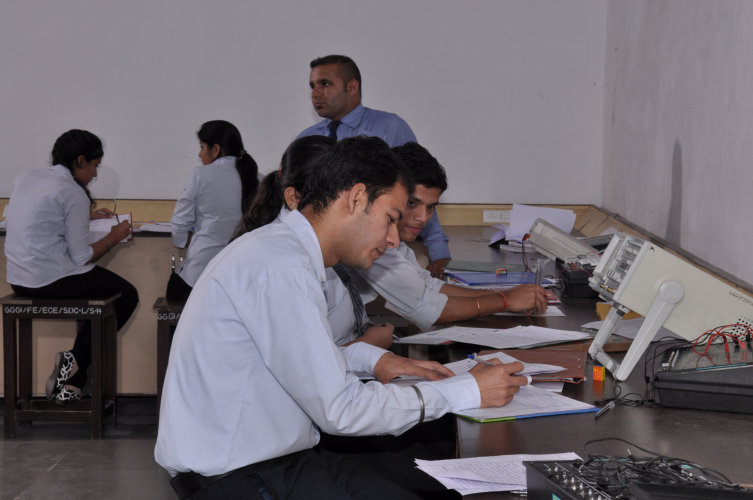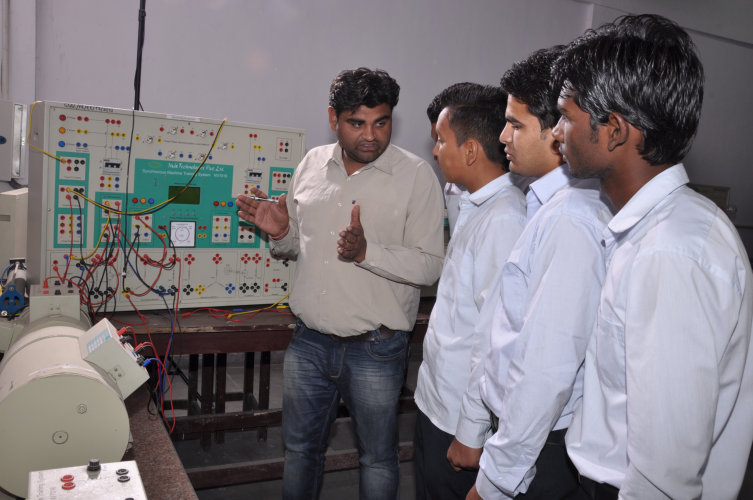Electrical engineering continues to be an ever demanding industry as indicated by the current trend for hiring graduates. Electrical engineers are working today in all spheres of modern society, be it internet, cellular communication, satellites, industrial control systems, power systems, non-conventional energy sources or DC and AC transmission systems.
The curriculum of the department of electrical engineering is therefore designed to impart the students consummate knowledge and skills for careers in wide range of industries. The courses for undergraduate program in Electrical Engineering comprise of eight semesters with five to six courses per semester. These courses typically include electrical machines, power systems, power electronics, control systems, analog and digital communication systems, Signal and systems and digital signal processing. Along with technical courses, management and communication courses are also a part of the curriculum so as to acquaint the students with the professional ethics.
The department boasts of distinguished and dedicated faculty that offers full support to the students to help bring out the best in them. The entire course structure consists of eight terms with an option of two summer terms for the benefit of those who would like to take a fast track. Students’ are given a free choice to select the electives from a variety of such courses being offered by the department in conjunction with the other allied branches of study.
Facilities
Electrical Engineering is a field of engineering that generally deals with the study and application of electricity, electronics, and electromagnetism. This field first became an identifiable occupation in the latter half of the 19th century after commercialization of the electric telegraph, the telephone, and electric power distribution and use. Subsequently, broadcasting and recording media made electronics part of daily life. The invention of the transistor and, subsequently, the integrated circuit brought down the cost of electronics to the point where they can be used in almost any household object. We have been continuously working to establish tie-ups with institutions and industries of national and international repute and to foster building up of a wide knowledge base to keep in tune with ever increasing demands of technologies. Other well equipped Laboratories in the department are-
- Electrical Engineering Lab
- Network Lab
- Electrical Machine Lab
- Electric Drive & traction Lab
- Signal & System Lab
- Control System Lab
- Micro-controller & Microprocessor Lab
- Measurement & Instrumentation Lab
- Simulation Lab (with MATLAB.)
- Power System Lab
- Power Electronics Lab
- Digital Electronics Lab
- Project Lab
- EMEC Lab
Why Electrical Engineering?
You can’t see electricity, but our present day lives depend on it .An Electrical Engineer is someone who designs and develops new electrical systems, solves problems and tests equipment. They study and apply the physics and mathematics of electricity, electromagnetism and electronics to both large and small scale systems to process information and transmit energy. Electrical Engineers work on a variety of projects, such as computers, robots, cell phones, radars, navigation systems, wiring and lighting in buildings and other kinds of Electrical systems. According to the Engineering Report 2015, Engineering, including Electrical Engineering, is one of the most in-demand professions in the world, with vacancies set to rise into the millions come the turn of the decade. Electrical Engineering is at the forefront of developing new technologies for a number of industries including transport, healthcare, construction, and robotics. What an exciting time to be alive and what an exciting time to be an Electrical Engineer.





